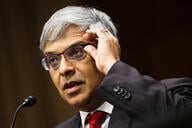You have /5 articles left.
Sign up for a free account or log in.
Last December, China’s President Xi Jinping called for greater “ideological guidance” at the country’s universities. He urged universities to “shoulder the burden of learning and researching the dissemination of Marxism.” Recently, China’s education minister Yuan Guiren said that educators must ensure that teaching materials do not criticize the party’s leadership or the socialist system. He reiterated Western values must never be permitted to infiltrate the classroom. Professors must “not complain, vent personal grievances or convey negative emotions to their students.” He demanded that teachers maintain firm “bottom lines” in politics, law and morality. His remarks triggered wide debate inside and outside China. Some argue that Marxism was imported from the West too, and some others view this campaign as something close to cultural suicide.
The President of Nankai University in Tianjin, Gong Ke, claimed that strengthening ideological guidance must avoid anything resembling the extreme political campaigns that repressed intellectuals in the 1950s and 1960s. Specifically, he likened the call for an overall purification and consolidation of university teachers to the extreme leftist thinking prevailing in that time. Earlier, Hai Wen, an economist and former Vice President of Peking University asserted that China would face a dead end unless it merged with a global (universal) value system for scholarship. In particular, he maintained that China would not be able to achieve progress or prosperity in isolation. His point is pretty well proven by China’s trajectory and performance since opening up and pursuing a reform strategy in the late 1970s.
Interestingly, it appears that some Chinese university presidents are opposing their minister of education. If you see this as a random happening, you would be a bit näive. Anyone knowledgeable about Chinese government’s capacity to control social media would acknowledge that the expression of opposition would be impossible if the authorities weren’t willing to allow these voices to be heard. Surprisingly, Gong’s perspective reached the public via www.people.cn, an online version of People’s Daily, a mouthpiece of the Communist Party of China (CPC). How do we read this brouhaha?
Perhaps the views expressed by scholars associated with the Party School (of CPC Central Committee) and Chinese Academy of Social Sciences (CASS) shed light on the actual meaning of this campaign. They define “Western values” as those concerning basic principles of democratic governance— those that might challenge the legitimacy of CPC leadership, especially when it is now in a bitter fight with internal corruption. Pretty much, those banned Western values concern what Wu Bangguo (former Chairman of the NPC Standing Committee), elaborated in 2011: “No multi-party election, no diversification of guiding principles, no separation of powers, no federal system, and no privatization.” These reforms could disrupt the principles justifying rule by the CPC.
As long as one doesn’t challenge the legitimacy or capacity of the CPC to rule China, a scholar will be free to follow the normal routines of scholarly and social life. This reflects one aspect of China’s “new normal” period. The “new normal” is now a hot phrase in the country, referring to the “big logic” at work behind the new socioeconomic rationale. This new rationale is needed to “endure and accept the economic slowdown,” “accept the government’s objective knowledge and rationality in the development of the economy and the society”, and “display confidence in the government’s provision of serene answers.” And, the “new normal” requires “good preparation and a mature approach to succeed”.
While many argue scholarly inquiries (in particular those in areas of social sciences) can hardly be separated from questioning social governance structure and patterns, this aspect of the “new normal” in China reminds me of Plato’s The Republic. In this book, Plato posits two visions for education: the first is the education of the warrior guardians and the second is the education of philosopher kings. The guardian’s education is primarily moral in nature, emphasizing the acceptance of beliefs and behaviours rather than the ability to think critically and independently. In contrast, potential philosopher kings must receive a form of education to distinguish those who are capable of philosophizing and to strengthen their character. Thus, the education of philosopher kings teaches love of learning and philosophy, as opposed to the false love of learning of the “noble puppies”.
While Plato clearly preferred the second type of education, he did indicate the first kind would be useful to maintain social order. We don’t have any real clue of Xi’s objectives, yet the type of education that Minister Yuan demands appears to work well for maintaining social stability and harmony in current China. At the same time, elite Chinese scholars always have the privilege to study Western-style democracy (e.g., those associated with the Party School and CASS). One could envision that when the CPC manages to clean itself up and begin to ease problems of social inequalities, it might be tempted to move to a new and more liberal form of education. Nevertheless, the question is how to exercise this kind of segregated arrangement in education in modern times, especially when half of million Chinese youth go abroad to pursue education programs every year and many more travel back and forth as tourists. As a matter of fact, ordinary Chinese people now do assume the liberty to discuss the wrongs of the CPC in the past six decades, as well as its legitimacy crisis. When Chinese university teachers and students are starting a new term this week, this recent ideological orientation will be tested out on campus. If people don’t take what a leadership says seriously, a new crisis is looming.

